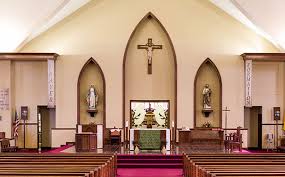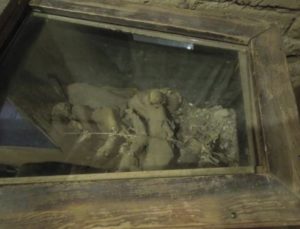
You know the feeling when you discover a long held belief isn’t what you thought?! Shocked, Saddened, Denying it, Attempting to disprove the new information – yep, those stages of grief. But learning the truth is important and I know it can change my genealogy sleuthing to find what I really need to get a better understanding of the family.
I’ve written previously about one of my husband’s great grandmothers, Mary “Mollie” O’Brien, who with her purported half sibling, ventured to New York City during the height of the Potato Famine from Ireland.
Cousins and I have surmised that Mollie and her sister must have been orphaned as Irish church and civil records show no trace of her parents after her Baptism in Limerick. This would explain why she set out for a new life in a new land.
Mollie worked as a maid in New York City and it was there she met Scotts immigrant, John Cook. After a brief courtship, the couple “eloped” via Newark, New Jersey where they had a quickie wedding and then took the train to Chicago where they lived out their life. Now “elope” is another fable that seems plausible but hasn’t been proven. Mary and John’s marriage record was found at a Roman Catholic Church in Newark that was close to the train station. The maid of honor and best man seem to be parishioners and not family or friends of the couple. Mollie was not honest about her age, adding a few years to make the union legal.
According to family tales, John was Protestant but agreed to marry Mollie in a Catholic church with the stipulation that any boys they had would be raised Protestant and the girls, Catholic. I always thought that was so forward thinking for the mid-1800’s. Love overcoming long held beliefs and the ability to compromise said a lot about their relationship. What a couple! Except, this story wasn’t true.
I first heard the tale from my father-in-law who explained to me why he was raised Protestant. His father, Andrew, was supposedly taken to church by his father, John, as part of this deal. I then met a descendant of William, Andrew’s brother, and she had heard the same tale. Using social media, we reconnected with a long lost cousin of Mary, the only girl the couple had and not surprising, that line had all remained Roman Catholic. So this story seemed true, except it wasn’t.
Recently, FindMyPast.com released Chicago, Illinois Roman Catholic church records. I initially went on to find my relatives – my mom and great aunt’s Baptism certificate and my grandparents’ marriage record. I still haven’t found the marriage and I had terrible difficulty locating my mom’s document. I have a copy so I knew it existed; I knew when and where it had been made but the search function did not allow me to search by the known church, even though it is supposed to work.
I began to eliminate first names in the search and kept the search vague – just the last name and not even the complete name. The surname was Koss but when the family emigrated, the spelling had been Kos so I used just that. The search engine then gave me all the Kos’ and Koss’ to explore further. Lo and behold, there was my mother as Dorothea and not Dorothy. I hadn’t thought that the Latin word would have been used in the database as the hard copy record clearly recorded Dorothy. (Side note: I’m now wondering what my real baptismal record shows as I recall my mom telling me that there was some discussion with the local priest that my name did not have a Latin translation and that was a problem. I really need to find out what the church decided to call me! Perhaps my mom always knew she had been recorded as Dorothea but this was the first time I learned of it.)
But back to Mollie…I decided to find the Baptism record for Mollie and John’s daughter, Mary, and based on my new found knowledge, entered only Cook. There were many of them but using the known birth year I thought I’d find Mary quickly. Nope, instead I found Andrew and William. So the boys had been Baptized Catholic after all. Interestingly, William’s name was not Latinized to Gulielmus nor was Andrew’s as Andreas. When I finally found what I think was Mary’s, it wasn’t either, but her parents first names were and I’m not sure I have the correct record as their last names are off. No one else seems to have Latinized surnames so I’m not understanding what’s up with this record.
To be honest, these records were a hot mess. My Great Aunt Barbara’s had several errors that were corrected by cross outs. First, my great grandfather’s name was entered as the infant and then corrected; my great grandmother’s name was crossed out then added. Someone wrote sideways “Were married” and my great grandmother’s maiden name, Grdenich, was also added sideways in pencil in what appears to be a different handwriting.
After several days I still can’t find my grandparent’s marriage and I have the pictures so I know it happened.
But once again, back to Mollie…I guess it is possible that the boys attended another church and Mollie just took daughter, Mary, with her to mass. My father-in-law never told me what particular denomination his father attended. I’m not convinced the boys ever went to any church as John Cook, Mollie’s husband, happens to be buried in the Catholic cemetery next to her. John was originally entombed in nondenominational Calvary Cemetery but after Mary’s death, the family moved him to Catholic Mount Carmel. So I have no idea if he was approving or opposed to the change. His sons didn’t seem to mind. Daughter Mary is in the same plot with her Catholic husband.
I looked for Roman Catholic marriage records for all 3 children but like with my grandmother, haven’t found them yet. I also haven’t found anyone’s Confirmation record. The search continues.




